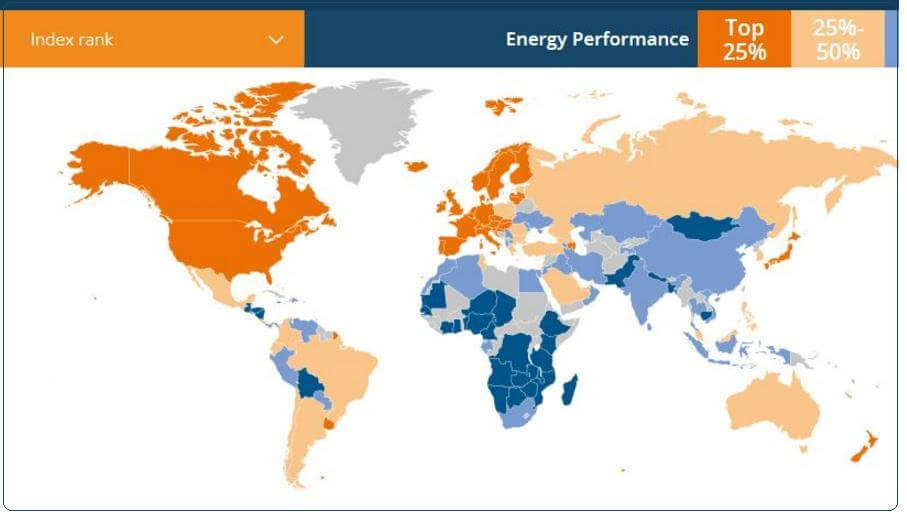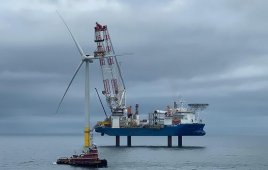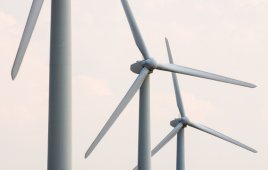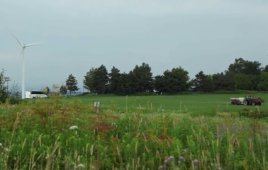Access to electricity and clean cooking has improved for the 125 Index countries to 85% and 74% respectively since 2000. At the same time cleaner forms of energy are being used for each dollar created, with CO2 intensity decreasing to 0.27tCO2/$ in 2014, and the share of renewables in the global energy mix going up to 9.7% in 2015.
This signals that countries are building more sustainable energy systems by concurrently addressing the three dimensions of the Energy Trilemma: energy security, energy equity, and environmental sustainability.
The Energy Trilemma Index 2016: Benchmarking the sustainability of national energy systems prepared by the World Energy Council, in partnership with Oliver Wyman along with its parent Marsh & McLennan Companies’ Global Risk Center, provides a comparative ranking of 125 countries in terms of their ability to provide secure, affordable, and environmentally sustainable energy systems.
The 6th annual edition presents a new method based on a comprehensive set of 35 indicators with enhanced focus on diversity, quality and affordability of supply as well as the resilience of a country’s system.

The Energy Trilemma Index 2016: Benchmarking the sustainability of national energy systems prepared by the World Energy Council.
Joan MacNaughton, Executive Chair of the World Energy Trilemma report said: “A shift in energy priorities is bringing greater diversity to the global energy mix, helping to underpin security of supply while increasing sustainability. Together with the increase in access to modern energy services – 85% today now compared to 80% in 2000 – this demonstrates how, overall, energy policies are leading to a more sustainable energy world. But with only 13 of 125 countries achieving a triple A score for their progress on the Trilemma goals, our work continues to offer valuable lessons for policymakers on how to create the frameworks which will incentivizee investment and innovation to deliver secure energy for all while meeting the climate challenge.”
For policy makers, the Index rankings help structure dialogues on the complex trade-offs in developing and implementing energy policy and regulations that will support secure, affordable and environmentally sustainable energy. Investors are increasingly assessing how and where to invest in the energy sector through the issues highlighted in the framework, and for energy business leaders, including IOC, NOCs and utilities, the Index provides insights to inform long-term strategies.”
Key findings from the top performing countries and regional analysis show that:
9 out of 10 countries are European showing that cooperation on long term policy for energy and climate can contribute to regional success even though Europe still has to manage its energy transition focusing on new market designs, demand management and establish an effective carbon price.
New Zealand makes the top 10 as the leading country in the East and The Philippines rank at the top of the environmental sustainability dimension while the Asian region overall faces the challenge of fast increasing energy demand and highly energy intensive future. Lessening the dependence from energy imports through reliable infrastructure and trade relationships and by increasing the use of renewable energy sources could put the region on a pathway to sustainable energy.
With around 50% of global resources in oil and gas, Middle East and North Africa countries are facing a real diversification and reduction of energy intensity challenge in order to improve their lower environmental performance. UAE leads the region with its diversification efforts positioning the country on the Index’s “positive watch” list.
In Latin America, policies must to focus on system’s resilience to extreme weather events and improving energy equity, building on the example of Uruguay which ranks the highest in the region after operating a successful energy transition.
In Sub-Saharan Africa, Mauritius (49), Gabon (67) and South Africa (84) form the top three of a region that still register lowest levels of energy access despite a rich endowment in resources and high renewables potential. Facing a growing energy demand means the region must attract investment, build institutional capacity and improve its grid and off-grid energy supply.
Several G7countries are flagged on the negative watch list including Germany, USA and the UK highlighting the challenges facing the more traditional leading industrialized countries to operate their energy transformation
The publication is available from: https://www.worldenergy.org/publications/2016/2016-energy-trilemma-index-benchmarking-the-sustainability-of-national-energy-systems/
Filed Under: Policy




